Tagline: An Epic of the Air
Pizza: Numero Uno
Preshow Entertainment: TALES FROM THE WARNER BROS. LOT
“DOGFIGHTS!”
“STUNTS!”
“LESBIANS!”
IT’S 1927’S BEST PICTURE - WINGS!
“STUNTS!”
“LESBIANS!”
IT’S 1927’S BEST PICTURE - WINGS!
Please don’t confuse tonight’s selection with McCartney’s post-Beatles band, or the 90s sitcom, or actor Wings Hauser, or the movie THE WINGS, about a gay sculptor. This is WINGS, the 1927 epic silent movie, famous for, among many things, being the first movie to win the Academy Award for Best Picture. What a fantastic movie choice the Gods of Random chose for us, especially after watching the preshow - TALES FROM THE WARNERS LOT. By accident, tonight was all about film history.
“Everything that I have, everything that I’ve ever accomplished, I have to credit a film called WINGS.” This was said by A.C. Lyles, Hollywood producer from the 1950s through his consulting work on HBO’s DEADWOOD (Lyles died at age 95, a few months before we screened WINGS). Lyles saw WINGS when he was 10 and was instantly thunderstruck. Not 10 years later, he moved to Hollywood and worked for Paramount, the studio that made WINGS. He worked in the movie biz for decades all because of WINGS.
I can see how in 1927, WINGS would hit anyone hard. It was an ambitious project, with thousands of extras, eye-popping acrobatic flying stunts and up-till-then unseen shots of planes and dogfights (to show perspective, they sometimes had to wait weeks for clouds to appear, rather than shoot against a clear blue sky). Of course today we’d hardly bat an eyelash because, let’s face it, we’re all CG-spoiled. But in 1927, moviegoers jaws must have hit the floor. Plus it had Clara Bow, the biggest star at the time. Bow was born in Brooklyn, on the other side of Prospect Park from where I was born, in 1905. I mean, she was born in 1905. I arrived later. She’s buried only miles from me here in California, at Forest Lawn Memorial Park, resting with the likes of Forrest Ackerman and Billy Barty.
Though the backdrop of WINGS is WWI fighter pilots, it’s actually a love story. Okay, it’s a few tangled love stories. I’ll go on to say it’s even about the love that the two leading men have for each other. If WINGS had a Facebook page, under “Relationship,” it would have said “It’s Complicated.” Jack (Buddy Rogers, aka Mr. Mary Pickford) dreams of flying, while neighbor Mary (original It Girl Clara Bow) dreams of Jack. But Jack likes rich city girl Sylvia. (Fool! That’s Clara Bow you’re ignoring! She’s raking it in!) Meanwhile, wealthy David (Richard Arlen) is being wooed by, yep, Sylvia. Jack thinks Sylvia is in love with him, as Mary pines for Jack, and…yeah, it’s complicated. Toldya.
Jack and David, rivals in their town, find themselves at the same army training camp. There’s some cool stuff here, like machine gun target practice and mock cockpits that spin on gyros. And their bunkmate? Gary Cooper (Super-duper!), who is only in the movie for a short time. Also in training, Herman Schwimpf (El Brendel), a comic relief American soldier who becomes a punching bag, almost literally, when his loyalty is put to the test by nearly everyone he meets. Meanwhile, Mary answers a wartime ad for the Woman’s Motor Corps - “Those who can drive Ford cars are especially desired.” It’s almost 40 minutes before Jack and David even step foot in a plane.
There are a few great surprises in WINGS, like when one character makes a rash and fatal decision while thinking someone is dead. If this sounds familiar, that’s because it was done the exact same way 74 years later in that awful WWII movie, PEARL HARBOR. Rip-off? Perhaps. But it’s a story hook that’s been used forever. Can I get an amen, Juliet? WINGS goes on to feature a further twist which I will not reveal here. I will tell you that it’s wonderful storytelling and it may just break your heart. There’s also, despite its now outdated acting style prevalent at the time, a moment or two where you just may find yourself getting choked up.
I like the story a lot and love WINGS’s place in the history of film. But truth be told, I’m more impressed with the production itself. There are flashbacks, well-thought out match dissolves (one noteworthy one was from a parade baton spinning to a train wheel), and a zoom in and then back out (1927 also saw a zoom used in another Clara Bow movie, IT). And Wellman knew that if the audience wasn’t inside the cockpit with the pilots, it would look fake. So they put cameras inside the planes. Cinematographer Harry Perry used both cockpit seats of the plane - Perry in one/actor in the other. Other occasions saw the actors themselves flying and being their own cameramen, sort of like selfies. When cameramen weren’t in the cockpit, the cameras sometimes were activated by the pilot/actors themselves. They placed cameras on the wings facing into the cockpit and also outward to see other planes.
For a few months, in another lifetime, I lived in Oswego, a small town upstate New York. We got more snow than Buffalo yet, because Buffalo was the big town, they got all the news coverage. Makes sense, as the snow would impact more people in that region than in a small town. Similarly, because it was a high profile film seen by a large amount of people, WINGS often gets the credit for being the first to use flashbacks, cameras in cockpits, zoom lenses, nudity, etc. WINGS is like Buffalo N.Y. getting credit for the snow. But I assure you, there were plenty of “Oswego movies” (features and shorts) that employed these techniques before WINGS. All that said, their various uses here are wonderful.
Additionally, Richard Arlen learned to fly planes so it wouldn’t look cheated (Buddy Rodgers knew how, having been a pilot in WWI). The way they flew those airplanes is the way they were flown in WWI. Wellman, also a WWI fighter pilot (remember, WWI was only over for a few years when WINGS was being filmed), made sure that the way they flew the plane was the way they were actually flown in WWI. The aerial footage and stunts also featured some great crashes, sometimes with people crawling out of the wreckage.
Filled with action, WINGS also loads us up with melodrama. Take, for instance, the scene where Mary has apparently lost Jack to another woman. In the washroom (okay, it’s France, so it’s toilette), a female attendant takes one look at Mary’s sadness and knows it’s about a boy. Even as Mary denies denies denies, the attendant proceeds to try and help her. This scene (remember, it’s a silent film with titles) is beautiful. There are also some haunting images, like a soldier killed by a shell, laying dead on the side of the road as the troops, in shadows, walk past. Or a tank rolling over a foxhole, crushing its inhabitant. Wellman, in an uncredited role as a soldier, also dies in this movie.
But WINGS isn’t only, by a longshot, about planes and death and flying and stunts and crashing and cool footage. I said earlier that it was ambitious and I meant it. They sometimes had 19 cameras rolling at the same time in one shot. One moment saw hundreds of troops marching away from us at the bottom of the frame as a double exposure shows soldiers getting killed at the top of the frame. And then there’s the almost famous over-the-tables shot, where the camera moves “through” four tables before reaching our table. They used a crane, but even by 2015 standards, this is a wonderfully executed shot. But get this – I noticed that at one of the tables sit two women lovers. Who knew there were lesbians in 1927? I thought they were invented recently. Anyway, this segues well to:
Even though it was 1927, it was still a Roarin’ 1927. You’ll witness insert shots of a woman’s ass walking away, or one of a woman’s low neckline as she attaches a brooch. Not to mention two soldiers walking in on Mary, topless as she’s changing. Again, not the first instance of nudity in a movie. Certainly a scandalous moment at the time. And yes, you can find these precious images today on the Mr. Skin site.
There’s more to WINGS than its story, acting and production details. There’s what they did after the movie was made – both in 1927 and a few years ago, when they did a stunning restoration. There’s a playful use of tinting (amber, lavender, etc.), hand-drawn stenciled-in color (not terribly uncommon in silents) and animated champagne bubbles. Some of this was digitally replicated to match the original (they still had all the studio notes on what effects went where). They even recreated the score from all the original sheet music.
In 1926, Paramount (then still called Famous Players-Lasky Corporation) president Adolph Zukor didn’t want to put such a large amount of money into a movie about planes (the movie was shepherded by Zukor’s partner Lasky, who had discovered the story). It was a “roadshow” movie, slated to play in a few big cities. They were able to get the army involved - actually, it may have been the Army that approached them, as it was good PR for both sides - they got to use a Texas training camp, actual troops as extras, and, best of all, WWI planes that were not even a decade old. It’s estimated that WINGS received $3 million in men, goods, and services from the Army. I just looked it up and that’s $43 million by today’s dollar. On top of that, there was Paramount’s own $2 million (27m today). And while we’re talking pricing, a ticket to WINGS in 1927 cost $2. That’s $28 today. And though that’s a hefty price to pay for a movie, it was worth it for the moviegoer. It was a spectacle. Just the flying sequences alone were probably worth the ticket, as most of the world had never flown in a plane. WINGS was the highest grossing film of the year, and ended up playing in theaters with a live orchestra for two years.
Preshow Entertainment: TALES FROM THE WARNER BROS. LOT
I have my own tale of the Warner Brothers lot. I was walking around with my friend when we noticed that everyone on the lot stopped talking. And many stopped walking. It was, ironically, like a scene from a movie. A sci-fi movie. What was going on? Well, when we looked ahead, we saw a few studio suits walking with Clint Eastwood. Yup, Clint is the only one I’ve ever seen stop people in their tracks. Anyway…
TALES FROM THE WARNER BROS. LOT is a documentary that aired on TCM back in 2013. And it’s fantastic. Saluting 90 years of the studio’s history, the doc, along with some great stills of the lot being built, takes us on a tour of the studio that has more sound stages than any other lot in Hollywood. While actors, producers and directors like Martin Sheen, William H. Macy, Morgan Freeman, Michael Keaton, Ben Affleck, Steve Carell, Christopher Nolan, and my good buddy Clint Eastwood tell us what the studio lot means to them, I found the stories of current and past employees to be the most interesting. It’s here that we learn of fascinating beginnings, and how the four Warner Brothers (no sign of Gummo anywhere) got into the business. Sadly, no interviews with Yakko, Wakko and Dot Warner.
One employee, Dwayne Davis, is a 3rd generation Warners employee (his dad worked in construction, as does he, and his grandfather was a cameraman for Jack Warner). And Tour Guide Dean Ricca tells us a fantastic tale of Stage 16. I can’t tell you everything. You should watch it yourself. Look for it on TCM in its 53-minute version. There’s supposedly a 1hr 43min version, but that seems to be MIA. Love to get my paws on that.
Oh, by the way, also featured in TALES FROM THE WARNER BROS. LOT is Efrem Zimbalist, Jr. He was alive when we screened this, and died by the time I wrote all this up, proving once and for all that a man can die waiting for my RMC write-ups.
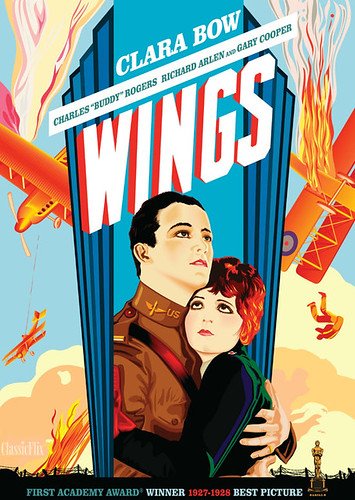
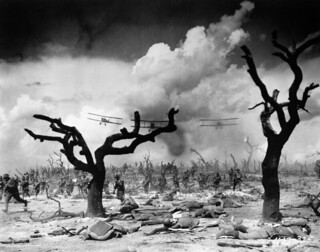
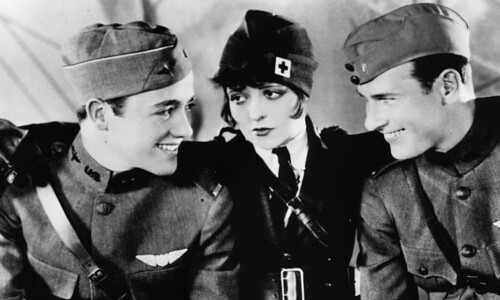
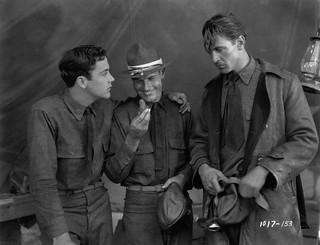
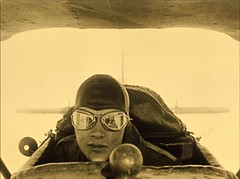
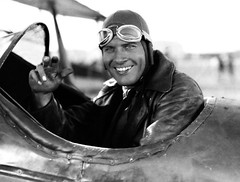
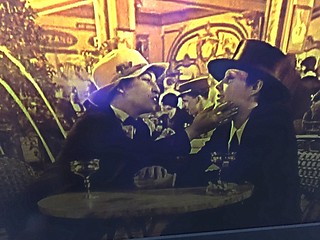
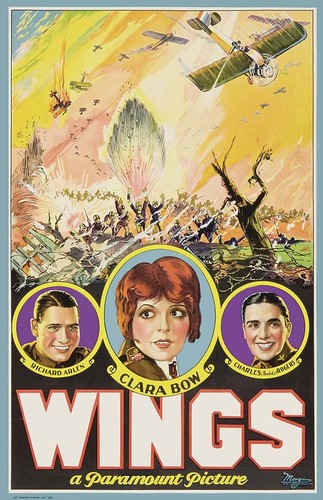

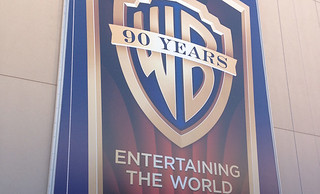
No comments:
Post a Comment